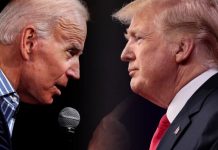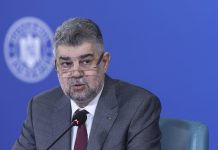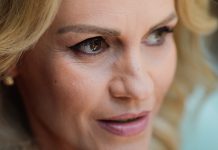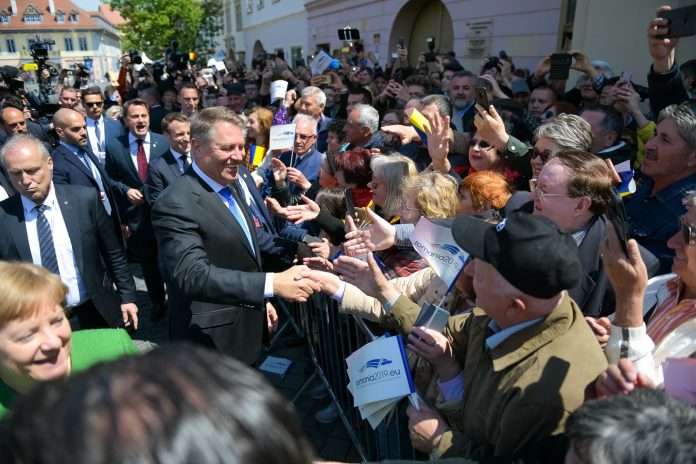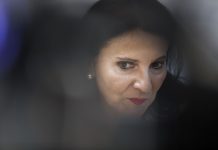Romania’s president recalled 23 ambassadors on Monday who have completed their missions abroad, less than six months after more than two dozen top diplomats were brought back.
The sweeping changes prompted speculation that President Klaus Iohannis, who’s in charge of Romania’s foreign policy and names ambassadors, wants fresh blood in the diplomatic corps and to free the foreign ministry from the political influence of previous years.
Romania’s ambassador to Washington, George Maior and the top diplomat to Germany, Emil Hurezeanu were the highest-profile names on decrees signed by the president on Monday. Both were personal appointees and allies of the president, particularly Mr Hurezeanu.
The mass recall was not done for overt political reasons, as was the case when Bucharest recalled its ambassador to Belarus in October 2020 in solidarity with Lithuania and Poland, amid continued tensions after Minsk’s disputed presidential election.
Mr Maior has been Bucharest’s ambassador to Washington since 2015, considered the top post for Romanian diplomacy. Romania has a strategic partnership with the U.S. and close security, political and military ties.
An ally of Romania’s pro-Western centrist president, Mr. Maior, 53, is author of “America’s First Spy: The Tragic Heroism of Frank Wisner.”
Before that, he was a Senator for the Social Democratic Party and later appointed chief of the Romanian Intelligence Service from October 2006 to January 2015.
The envoy to Berlin, Mr Hurezeanu, is a highly respected and well-known journalist and intellectual. Like the president, he comes from the central city of Sibiu.
Mr Hurezeanu, 65, became ambassador to Berlin in 2015 and has played a key role developing economic and cultural ties in almost six years he spent in office. Germany is Romania’s top trading partner and business has increased in recent years.
Under the presidency of Mr. Iohannis, who belongs to the small ethnic German community in Transylvania, Berlin has become focus of Romania’s foreign policy in Europe.
Last year, after hundreds of seasonal workers from Romania caught the coronavirus in German slaughterhouses, exposing poor living conditions and their precarious legal situation, Mr Hurezeanu was involved in a major change of German labor law. A new bill requires companies to directly employ any workers involved in slaughtering and meat processing starting last month.
As ambassador, he attended a meeting with senior officials from the German Interior and Agriculture ministries to discuss the bill which he called it „a radical change” in the law.
„We were the co-authors,” he told Radio Free Europe. „It was built on our suffering.”
Mr. Hurezeanu worked for the Romanian department of Radio Free European Munich from 1983 to 1994, including a brief stint as director and then studied political science at the University of Virginia. He also worked as director of the Romanian section of Deutsche Welle from 1995 to 2002.
He returned to Romania and held senior positions in the media, including director of the Realitatea-Catavencu trust from 2009 to 2010.
He is author of several fiction and non-fiction books.
The president who appoints ambassadors, recalled 26 of them in September 2020, including the ambassador to Britain, Dan Mihalache who’s now Romania’s envoy to Cyprus and the Adrian Cioroianu, a former foreign minister who headed Romania’s mission to UNESCO.
Ambassadors to Austria, Switzerland, Poland, Japan, Cuba and a number of Caribbean islands and Brazil were among the top diplomats recalled Monday.





